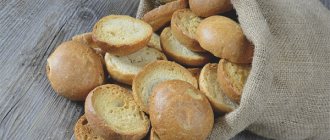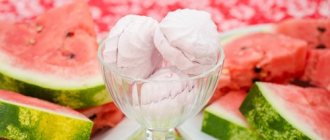Benefit
Blueberries are valued for their beneficial properties. The berries are used for diarrhea, to restore blood supply to the retina, and improve brain function. They have a positive effect on the genitourinary system.
The chemical composition is unique. Product includes:
- Microelements - calcium, potassium, sodium, as well as trace elements - selenium, zinc, manganese.
- Vitamin C supports the immune system and strengthens blood vessels.
- Lots of vitamins K, E, A and B.
- Acids include lactic, succinic, and oxalic.
- Flavonoids.
Can a nursing mother eat blueberries? Considering the composition, the product is very useful during breastfeeding (BF). Berries are considered dietary because they contain fiber: by eating a few fruits, you can eliminate the feeling of hunger. Blueberries contain anthocyanin dye, which reduces the risks of heart and vascular diseases, as well as eye diseases and cancer.
Berries thin the blood, which helps prevent thrombosis. Leaves rich in tannins, flavonoids, and essential oils are used in treatment. The berry is used as a food product and as a medicinal product.
Homemade blueberry casserole for a nursing mother
Blueberries are a tasty and incredibly healthy berry that is good not only when eaten fresh. You can use blueberries as an ingredient in desserts and various types of baked goods.
We bring to your attention a step-by-step recipe for preparing a delicious casserole, which is suitable for breakfast, dinner or a light snack.
To prepare the cottage cheese and blueberry casserole we will need:
- Natural yogurt (without additives) - 100 ml;
- Blueberries (fresh or frozen) - 100 g;
- Potato starch - 1 tbsp. l.;
- Oatmeal - 2 tbsp. l.;
- Cottage cheese - 250 g;
- Chicken egg - 1 pc.;
- Granulated sugar - 1 tbsp. l.;
- A pinch of salt.
Once all the ingredients are prepared, we can start preparing the casserole.
- Mix cottage cheese, yogurt, egg, sugar and salt until smooth. You can use a blender or do this in a bowl using a regular fork. However, if you decide not to mix the ingredients by hand, rub the cottage cheese through a sieve to make its texture more tender and uniform.
- Divide the resulting mass into two equal parts.
- Add starch and blueberries to one part and mix again using a blender.
- Mix the rest of the curd mass with oatmeal.
- In a mold lined with baking paper, place a white layer of casserole, and on top of it a layer of blueberry mixture.
- Bake at a temperature of about 170°C for 25 - 30 minutes.
Our healthy and tasty casserole can be served with sour cream.
Bon appetit!
Of course, blueberries can bring benefits and pleasure to breastfeeding for any woman.
This tasty berry can replenish nutrients and prevent various diseases. According to experts, blueberries are practically safe for breastfeeding.
Due to its balanced composition, the risk of an allergic reaction is minimal, therefore, nursing mothers, having become familiar with the main contraindications, can consume this healing berry as an additional source of vitamins and microelements.
Is it allowed in the first month?
It is worth introducing berries into the menu of a nursing mother gradually. In the first month of lactation, it is not advisable to add blueberries to the diet; only 3–4 months after birth can this healthy and tasty product be eaten without fear.
In what form is it available?
A young mother will benefit most from fresh, frozen or dried blueberries.
It is not recommended to add sugar to the berries and heat them. Frozen fruits must be thawed before consumption and consumed warm.
Benefits for the mother
The beneficial properties of blueberries are so unique that they can rightfully be considered not just a delicacy, but a medicine. The benefits of the product for the body of a nursing mother are invaluable and are largely due to the chemical composition.
The berries contain acids that are essential for the full functioning of the mother’s body:
- apple;
- amber;
- dairy;
- lemon;
- sorrel
Blueberries include micro- and macroelements:
- chromium;
- zinc;
- sulfur;
- magnesium;
- phosphorus;
- manganese;
- potassium;
- iron and copper;
- B vitamins;
- vitamins A, C, PP;
- essential oils;
- alcohols;
- pectins and tannins.
The positive effect of blueberries on the mother's body
:
- Rapid recovery of the body after pregnancy and childbirth.
- Improved visual acuity.
- Prevention of eye and oral diseases.
- Memory improvement.
- Strengthening the cardiovascular system.
- Reduced blood sugar levels.
- Restoration of the pancreas.
- Beneficial effect on the digestive system.
- Preventing premature aging of the body.
- Elimination of inflammatory processes in the kidneys and genitourinary tract.
- Relief of rheumatism.
- Prevention of blood clots.
- Strengthening the immune system.
- Improved brain function.
- Elimination of diarrhea.
With regular consumption of blueberries, breast milk will become more nutritious and beneficial for the baby, and the mother’s body will recover faster after childbirth.
Is it allowed?
Can a nursing mother eat blueberries? The berry is not contraindicated during this period, but, like other fruits, it must be consumed according to the norm and not overused. Young mothers may not know everything about the baby’s body, so they will not be able to predict his reaction to a healthy treat.
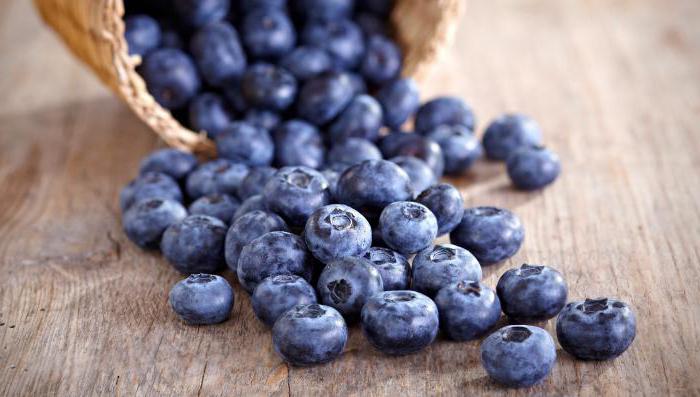
Although blueberries are not contraindicated for breastfeeding, and doctors consider them non-allergenic, there are children with individual intolerance. This manifests itself in allergies. Also, eating berries during breastfeeding can cause diathesis in a child. The first time you need to eat only a few berries. If the child does not have allergies, then next time you can slightly increase the volume of the product.
Blueberries during breastfeeding
Of course, blueberries can bring benefits and pleasure to breastfeeding for any mother.
It replenishes nutrients and helps in the prevention of many ailments.
But it will not be possible to take fresh blueberries if the mother has gastritis with decreased acidity, decreased blood clotting, intestinal obstruction or chronic hypotonic constipation.
Dried blueberries should be taken carefully in case of problems with the outflow of bile and problems with the pancreas.
During breastfeeding, blueberries can be useful, but in everything there must be moderation and caution, since this berry may not be completely harmless and safe for the baby.
Although doctors call blueberries a hypoallergenic berry, and there is no strict ban on their use while breastfeeding, however, in real life there are cases when blueberries give a child quite pronounced allergic reactions.
Sometimes allergies occur in the mother herself, therefore, caution is needed when consuming blueberries while breastfeeding.
You should try blueberries only when they are in season, but you should introduce them carefully and in small doses, especially if you have hardly eaten them before.
You should start getting acquainted with blueberries with a few carefully washed berries.
It is worth monitoring your baby’s reaction for about a day, taking the berries in the first half of the day. If there is a reaction, it will manifest itself quickly.
Usually this can be rashes and loose stools, or constipation. Then you should put blueberries aside for one or two months and try them later, when the baby is older.
You can freeze blueberries for compote or desserts. In this form it is usually better tolerated. In general, blueberries are not prohibited while breastfeeding, but you need to try and introduce them slowly and carefully.
Other information on the topic
A properly formulated diet for a nursing woman is the key to the health of her baby, because the quality of breast milk depends on what the mother eats. Unfortunately, the baby does not respond well to all healthy foods. After all, his body does not produce enough enzymes capable of breaking down complex organic compounds into simpler ones. Next, we will look at whether a nursing mother can eat blueberries, and what are their benefits?
Benefits of blueberries for a nursing mother
Berries and fresh juices are very useful for a young mother. Thus, legends can be made about the beneficial properties of blueberries. It is rich in vitamin C, which helps strengthen blood vessels and increase the body's defenses. Increasing immunity in a nursing mother is an important point, because after pregnancy and childbirth, a woman’s body is depleted. And breastfeeding and caring for an infant do not give him strength. One of the most important properties of blueberries is their antioxidant effect, that is, the active elements of these berries are able to neutralize free radicals that destroy body cells. Blueberries contain a number of essential microelements, such as: iron, potassium, phosphorus, magnesium, zinc, copper, sulfur, chromium, titanium. In addition to ascorbic acid, these wonderful berries contain vitamins B and P, as well as acids: malic, citric, oxalic, lactic and succinic. Blueberries play an important role in regulating blood viscosity. Thus, it reduces its ability to clot, helping to improve microcirculation in peripheral organs.
How to take blueberries while breastfeeding?
Although blueberries are generally considered hypoallergenic, they, like other new products, should be introduced into the mother’s diet with great caution, because it is impossible to predict the baby’s reaction. During this crucial period, even such a useful product can cause or manifest itself in a child. Some recommendations should be followed:
- eat a few berries in the first half of the day and observe the baby’s reaction throughout the day;
- if the baby reacted normally to the new product, then every day you can gradually increase the amount of berries you eat;
- If a child has a negative reaction to taking blueberries, do not despair. You should try again no earlier than in a month, perhaps by this time the baby’s taste qualities will change. You can try making compote from frozen berries. In this form, fruits and berries are always less allergenic.
Is it possible to take blueberries during lactation for medicinal purposes?
Everyone has long known the medicinal properties of blueberries, which help improve intestinal function during diarrhea. Dried berries are often used for this - just a few pieces may be enough to stop diarrhea. Their important property is their ability to improve vision. Many pharmaceutical companies prepare medicines based on extracts from blueberries, or you can simply eat fresh or frozen berries. The anti-inflammatory effect of blueberries is very important, the use of which helps protect the urinary, respiratory and gastrointestinal tract from infection.
Thus, we have considered all the positive aspects of taking blueberries during breastfeeding. And besides its beneficial properties, it is also very tasty. You can eat it either separately or together with cottage cheese and oatmeal, make jam from it, bake pies, and whatever your wild female imagination can do! Therefore, eating blueberries while breastfeeding is not only allowed, but also highly recommended. The main thing is to observe moderation in everything.
Blueberries can bring a lot of benefits to mother and unborn baby during breastfeeding. But how to use it correctly so as not to harm your health? Every mother tries to exclude berries and fruits from her diet, as they transmit many allergens through milk, which are contraindicated for the baby. Everything should be in moderation. So let’s figure out why blueberries are beneficial for breastfeeding, and how to use them correctly to protect yourself and your baby.
Rules of use
Nursing mothers need to follow simple tips for introducing and consuming this berry:
- During the first month after giving birth, many foods are prohibited, so mothers do not have to eat all the food they want. The berry is not on the forbidden list, but you shouldn’t get too carried away with it. Blueberries are undesirable during breastfeeding in the first month, but 3-4 months after birth you can eat them without fear.
- The new product should be introduced in the first half of the day so that it is possible to monitor the baby.
- You just need to try the berry, and not eat it in large quantities. For the first time, 5-7 berries will be enough.
- If the child has no negative reactions, then blueberries can be eaten without fear.
- If a rash or other signs of allergy appear, you should stop eating the berry. You can try again no earlier than in a month. It is advisable to start with frozen compote, since in this form the berry is less allergenic.
Is it possible to eat blueberries in the first month after giving birth and how to do it correctly
Now let's figure out how to properly introduce blueberries into the diet of a nursing mother and when is the best time to do it.
In the first months of a baby’s life, his digestive system is not yet sufficiently developed, and therefore it may react incorrectly to new food that comes to the baby with mother’s milk. That is why pediatricians recommend trying blueberries no earlier than 2-3 months after birth.
The first portion should be very small - it is enough to eat a few berries, so that if an allergy occurs in the baby, it will not be too strong. Usually such a reaction manifests itself within a couple of days, and therefore if everything went well during this period, then you can slightly increase the portion.
Pediatricians recommend eating no more than half a glass of this wonderful berry per day, and it is better to eat blueberries not every day, but once every two to three days. This way, you and your baby will get enough nutrients, but will not experience side effects.
In what form is it best to consume?
Frozen foods are less allergenic to humans. This will be relevant if the baby’s feeding time is not during the blueberry season. Then the berries are picked during ripening and then frozen. You can make compotes, preserves, and jams from the fruits. Blueberries are useful not only for breastfeeding. Compote can also be consumed by babies under 1 year old - it can be introduced into the diet as early as 7-8 months.
Blueberry jam and desserts are well tolerated, so young mothers should start eating the berries in this form. Jelly allows you to quench your sweet tooth during breastfeeding. Usually the delicacy is obtained without heat treatment, so it retains all the valuable properties of blueberries.
How to choose?
When choosing a product, you should pay attention to uniform coloring. The presence of pale and pink berries indicates that the berries are not fully ripe.
The fruits should be quite elastic, whole, with a smooth surface and have a light white coating. High-quality berries should taste sweet and juicy.
To minimize possible negative reactions of a child to berries, it is worth purchasing the product only in season. It is advisable that the berries be grown in the region of residence. Foreign blueberries from store shelves may have been treated with chemicals, so it is not recommended to buy such a product during lactation.
Blueberries should be stored in the refrigerator in an open container.
Shelf life is no more than 7 - 10 days.
Despite the beneficial properties of blueberries, introducing them into the diet, like any new berry for a child, should be done very carefully.
Experts recommend diversifying a nursing mother's menu with blueberries no earlier than 3 to 4 months after birth. By this period, the baby’s stomach is gradually adapting to new products in the mother’s diet and the risk of a negative reaction is minimal.
For the first time, one or two berries will be enough. It is necessary to eat the berries in the first half of the day and observe the child’s reaction for two days. If rash, diarrhea, redness, itching, cough, anxiety, runny nose do not appear, then you can increase the daily dose. In case of a negative reaction, you should discard the berry
for a couple of months, then try it again.
It is advisable for a nursing mother to consume blueberries in their natural form, after washing the berries in clean water. When preparing compotes or infusions from blueberries, it is not advisable to add sugar or honey.
Although berry jam turns out tasty and aromatic, it will not bring much benefit to a nursing mother and her baby.
How to properly introduce it into your baby's diet?
Starting from 8 to 10 months, you can give your baby blueberries as complementary foods.
Under no circumstances should berries be offered to infants under five months of age. During the first months of life, the baby's stomach accepts only mother's milk well. If berries are introduced early into the diet, intestinal microflora may be disrupted, diathesis and problems with the gallbladder and stool may occur.
It is allowed to give juice from blueberries. In this case, it is diluted with boiled water in a ratio of 50 to 50.
If the appropriate period for including fruits is out of season, then you can prepare a compote of frozen berries for your baby. It is not recommended to add other berries, dried fruits and sugar to the compote. The compote is prepared in clean water and offered to the baby warm,
starting with 1 teaspoon per day.
The daily intake of berries for a nursing mother or a one-year-old baby should not be more than 50 - 100 g.
Thus, when consumed correctly, blueberries can serve as a good vitamin supplement for a mother and her baby,
strengthen the immune system and even eliminate some ailments.
Blueberries ripen in early July, but the berries can be picked until late autumn. The berries are very aromatic, sweet, and have a unique taste. Since ancient times, the plant has been considered useful, and its leaves and fruits have been considered healing. Few people have not heard at least that blueberries strengthen eyesight.
So mothers who have heard a lot of good things about this shrub often ask whether blueberries are allowed during breastfeeding. This issue needs to be looked at more carefully.
Blank
If blueberries do not cause allergies during breastfeeding, then they can be harvested for future use. The best option would be freezing. You should sort the berries, wash and dry. Then you need to put the workpiece in a bag and put it in the freezer. In winter, during a lack of vitamins, such a product will be more useful than ever.
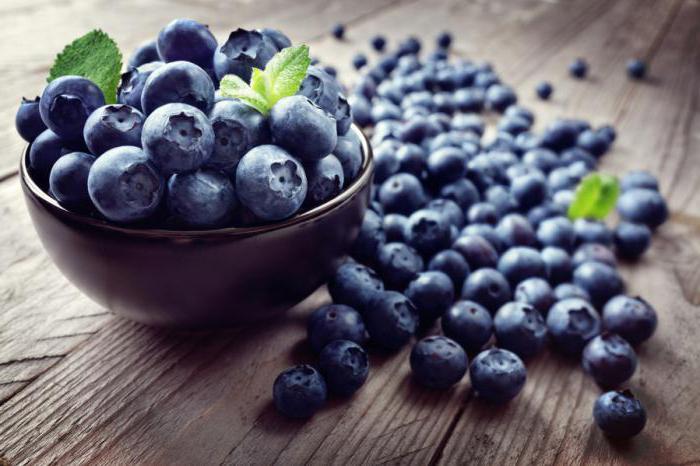
Frozen berries go well with cereals and baked goods. Blueberries can be dried and made into jam. Not only blueberries will be beneficial for breastfeeding. Young leaves of the plant are also prepared: they need to be dried in the shade and placed in a glass jar. Raw materials are stored in a dark room. The leaves can be added to tea or compote, making the drink tastier and healthier.
Can a nursing mother have blueberry jam?
We figured out whether a nursing mother can eat blueberries. What about jam? Doctors advise you to start eating this dish at least six months after giving birth. A sweet product can cause severe allergies, colic and stomach upset. However, with moderate consumption, you will avoid these problems.
Also start complementary feeding with a small dose. Be sure to monitor the newborn’s well-being for two to three days. Remember about the dangers of brightly colored berries. Strawberry and raspberry jam should also not be consumed. You should also not eat citrus treats. But blueberry and blackcurrant jam is harmless.
Blueberry jelly is a great option if mom wants something sweet. This is a light summer and healthy dessert that is prepared without heat treatment. This preserves vitamins, valuable properties and elements of the fruit.
To make jelly, rub fresh berries through a sieve and separate the pulp from the skin and seeds. Then add the cooled sugar syrup to the mixture. An easier way is to puree the blueberries in a blender. But in this case, small bones will remain. After the syrup, gelatin diluted in cold water is added to the resulting mass. The jelly is mixed and placed in the refrigerator.
During the feeding period, women often have to give up eating many of their favorite treats so as not to harm the baby’s health.
Is it possible to make blueberry jam while breastfeeding or does the mother need to be careful and refrain from consuming this product until the baby grows up? Let's try to figure out how appropriate this dessert is in a woman's diet during lactation; will it cause allergic reactions in the child?
Before we find out whether blueberry jam can be used while breastfeeding, let’s find out whether blueberries are good for breastfeeding and what effect does it have on our body?
Blueberry season lasts from June to September. This amazing aromatic berry contains a unique complex of vitamins, minerals and organic acids. First of all, it is, of course, vitamin A, which helps normalize visual acuity.
This berry, containing tannins, has an astringent and antiseptic effect, eliminates indigestion if it is not caused by an intestinal infection.
In addition, blueberries provide the body with:
- B vitamins necessary for optimizing metabolism, normal functioning of nerve cells, heart and blood vessels;
- vitamin C, which increases performance and strengthens the immune system, helps fight inflammatory processes;
- vitamin P, which increases the elasticity of capillaries and improves blood circulation;
- phosphorus, necessary for brain function, strengthening bone tissue and tooth enamel;
- iron, necessary for the prevention of iron deficiency anemia;
- sulfur, which helps eliminate toxins.
The list of useful minerals, of course, can be continued.
In addition, blueberries contain a complex of fruit acids, pectin, carotene and cane sugar. However, the main value of blueberries for nursing mothers is their hypoallergenicity.
Unlike most red berries and fruits, which are a potential source of allergies for your baby, blueberries and other blue berries do not pose such a danger. Of course, each person’s body is unique, so a nursing mother needs to be careful when trying a new product for her baby for the first time after giving birth.
About healthy blueberry jam
Since we have established that blueberries are a healthy and even hypoallergenic product, it is quite natural to assume that a little blueberry jam in your diet, at a minimum, will not harm your baby.
So is it possible to eat blueberry jam while breastfeeding? This question can be answered in the affirmative, but, as usual, with some caveats:
- First of all, you should remember that jam contains quite a lot of sugar, which can cause excess gas in the baby’s intestines.
- The tannins contained in blueberries can lead to constipation. If you or your baby has this kind of problem, don't get too carried away with blueberry jam. In addition, this product is not recommended for use if you have gastritis.
- Only completely natural, high-quality products are allowed on the menu of a nursing mother. That is why you should be very careful about a beautiful jar purchased in a supermarket. Carefully study the composition: a quality product should not contain thickeners or preservatives.
- Unfortunately, many vitamins are destroyed by prolonged heat treatment, so if you want to get the maximum benefits, give preference to fresh, dried or frozen berries.
Compote
Blueberry compote is also useful for breastfeeding. To prepare it, you need 1 kg of berries and sugar (350 g per 1 liter of water). Jars (1 and 1.5 liters) need to be rinsed and treated with boiling water. Then the berries must be sorted, leaving only ripe but strong fruits. Next, you need to carefully rinse the blueberries and dry them by placing them on a sieve.
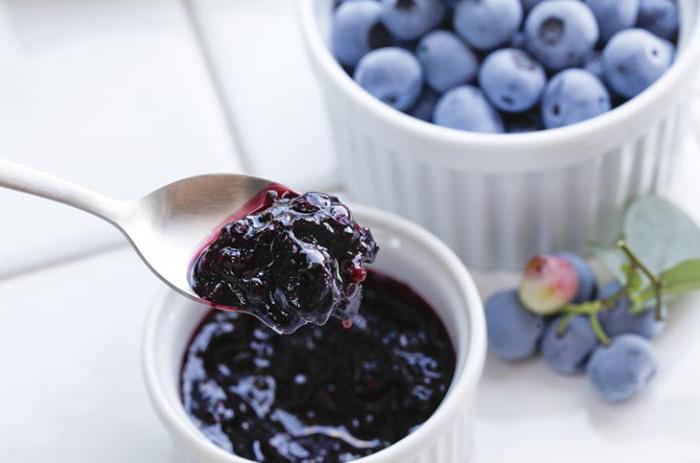
Half fill the jars with berries. Pour water into the pan and add sugar. While stirring, boil the syrup for 5 minutes and strain through cheesecloth. Blueberries are poured with syrup. The jars need to be covered with lids and then placed in a pan with hot water. It is necessary to perform sterilization: 0.5 l – 15 minutes, 1 l – 20 minutes. Then the jars must be removed and closed with lids, turned over, and wrapped in a blanket to cool evenly.
How to prepare blueberries for future use
If no side effects are found during breastfeeding of a newborn at 1 month, then the mother can prepare the harvested or purchased crop for future use. The most optimal and best option to preserve vitamins in berries is freezing. The main thing is to thoroughly rinse and sort the available fruits and, placing them in plastic containers, put them in the freezer for long-term storage. In winter, frozen berries can be added to porridge, pies, and compote. In this form it is better absorbed.
Important! You can freeze the berries once, so it is better to take small containers for packaging.
Can a nursing mother have blueberry jam? Any mother will rarely refuse such a sweet treat. This is another most versatile way to harvest blueberries for yourself. A jar of this jam can be a salvation in the winter. It will help with colds, acute respiratory infections, bronchitis, and inflammation of the upper respiratory tract. In addition, it has an antipyretic and diaphoretic effect.
Dried fruits can be a salvation during diarrhea, both in the mother and in the newborn, since the tannins present in the berry enter the milk with the decoction and are then passed on to the child. And everyone knows that dry blueberries eliminate acute intestinal upset. In such raw materials, the concentration of useful substances only increases.
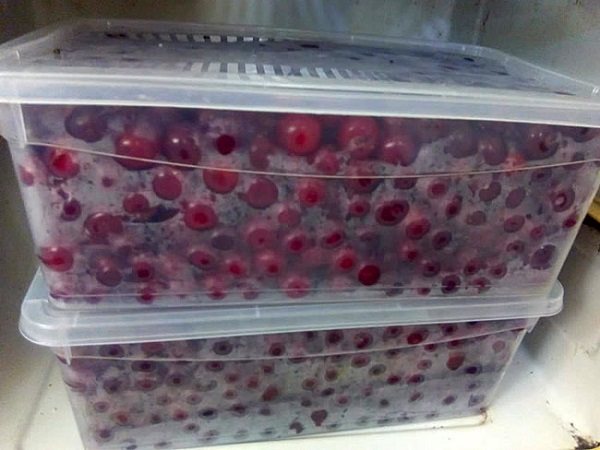
Dried blueberry leaves are of great benefit to nursing mothers. You can prepare them yourself, or you can buy them at the pharmacy. They are used to make medicinal decoctions, infusions, or simply add to tea. But before using them for medicinal purposes, you must consult with your pediatrician, who will approve or not authorize its use.
Jam
Blueberries will be useful during breastfeeding in the form of jam. If the product will be stored in a pantry or cellar, then heat treatment is necessary. It is advisable to choose methods of exposure in which fewer microelements are lost. To prepare a healthy treat, use the following simple recipe.
You will need berries, pectin (1 sachet per 1 kg of blueberries), sugar (in the same amount as the fruits). To obtain a jam that is not too liquid, add 2 times more pectin. But you should proceed with caution, otherwise lumps will appear.

The berries must be washed, sorted, and placed on a towel to dry. Then they are transferred to a container and mixed with sugar. Using a masher, you need to grind the mass until smooth, and then add pectin and mix everything thoroughly.
Place the container over medium heat and bring to a boil, stirring the product constantly. Then the fire decreases and you need to wait 5-7 minutes. Hot jam is poured into sterile jars and sealed with tin lids. These blueberries are safe for breastfeeding, and they also retain their beneficial properties.
Tips for choosing and eating blueberries during breastfeeding
Blueberries are a seasonal berry and quite versatile in culinary terms, so there are a number of recommendations that will help a young mother choose high-quality gifts of nature and eat them in the safest way.
- You should buy or pick blueberries at the end of summer - at this time the berries finally ripen and contain the greatest amount of useful substances. It is better to avoid buying “fresh” blueberries at other times of the year.
- The berries should not be wrinkled or too soft - this is a sign of an overripe or spoiled product.
- To delight yourself with aromatic berries all year round, you can dry or freeze them. When freezing, you should remember that if the blueberries have melted at least once, then they cannot be re-frozen. For the same reason, you should carefully study the contents of the package with purchased berries - there should be no ice inside.
- Dried berries can be used to brew aromatic tea and cook compotes. Remember that the longer blueberries are cooked, the less nutrients remain in them, and therefore it is best to simply infuse the berries in hot water.
- Frozen berries should be added to pies and other homemade sweets. This way you will add at least some useful properties to the high-calorie treat.
- Blueberry jam can also be eaten during breastfeeding, but it should be remembered that prolonged cooking reduces the benefits of blueberries quite significantly, and the abundance of sugar makes such a delicacy too high in calories.
As you can see, blueberries during breastfeeding can be an excellent helper for a nursing mother and baby. A significant number of beneficial properties make it an indispensable product for replenishing vitamins and vital compounds. However, it should be remembered that, like any other product, this berry should be eaten in moderation and carefully monitoring the baby’s reaction.
Blueberries can bring a lot of benefits to mother and unborn baby during breastfeeding. But how to use it correctly so as not to harm your health? Every mother tries to exclude berries and fruits from her diet, as they transmit many allergens through milk, which are contraindicated for the baby. Everything should be in moderation. So let’s figure out why blueberries are beneficial for breastfeeding, and how to use them correctly to protect yourself and your baby.
Dessert
When breastfeeding, you can eat blueberries in other forms. For example, desserts are made from it. You will need cottage cheese (200 g), ground through a sieve. Use a blender to beat the berries (1 cup) and banana (1 pc.). Transfer half of the blueberry-banana mixture to a plate. Cottage cheese and natural yogurt (200 ml) are added to the remaining portion. All products must be whipped until smooth. Transfer the finished mass into saucers or bowls. Ice cream and blueberry-banana mixture are added to the top. The result is a tasty and healthy dessert that retains all the valuable vitamins. You can cook other delicious dishes from the berries.
Thus, blueberries are safe during breastfeeding. But it is best to consult a doctor before use to avoid adverse consequences for yourself and your child. If the specialist allows you to eat berries, then you need to introduce them gradually.
Is it possible or not with breastfeeding?
Breastfeeding specialists and pediatricians believe that blueberries are the ideal berry for a mother who is afraid of causing an allergic reaction in her baby who is breastfeeding. Eating berries during this period is a complex issue. Many can cause a rash in an infant, diarrhea, and anxiety. This is especially true for red fruits - raspberries, strawberries, strawberries, red currants. Berries of dark shades are less dangerous. They can be eaten with caution by nursing mothers, especially if the berries are collected from environmentally friendly places. They will add health to both mother and child.
Blueberries have many beneficial properties for the body that will help a woman who has given birth restore her strength and health.
The berry helps fight the lack of vitamins in the body, this is especially true for a nursing mother in the autumn-winter period. With regular consumption of the berry, the milk will become more nutritious and beneficial for the baby, and the mother will recover faster after childbirth and saturate the body with useful substances. Vitamins and microelements in blueberries:
| Ascorbic acid (vitamin C) | It has an anti-inflammatory effect, activates the immune system, and removes toxins. Improves overall well-being and performance, fights colds |
| B vitamins | Improves the functioning of the nervous system, improves the condition of the skin, nails, hair, restores the functioning of the musculoskeletal system |
| Carotene | Has an antioxidant effect, improves vision |
| Phosphorus | Strengthens tooth enamel and makes bone tissue denser, normalizes metabolic processes in the central nervous system |
| Iron | Fights anemia |
| Potassium | Improves the functioning of the nervous system |
| Sulfur | Removes toxins and fights bacteria |
| Copper | Strengthens heart vessels |
| Lactic acid | Is a source of energy, accelerates the growth of muscle tissue |
| succinic acid | Strengthens the nervous system and stabilizes the psychological background |
| Pectin | Removes toxins, reduces the amount of cholesterol in the body |
| Tannins | Have a strengthening, bactericidal effect |
| Cane sugar | Burns excess fat and is a source of energy |






